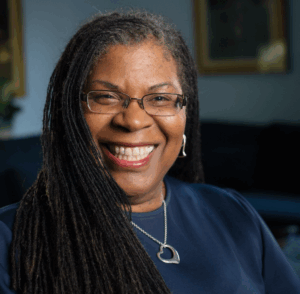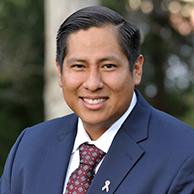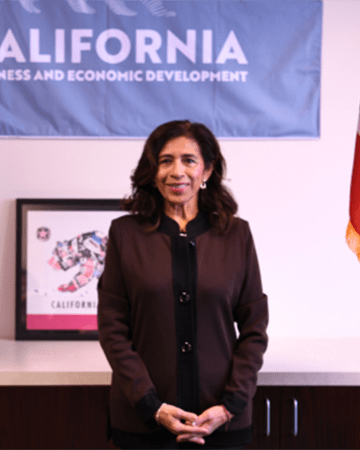 From the Advocate
From the Advocate
March 2023
Undervalued No More
I frequently get asked to provide remarks to commemorate Black History Month.
This befits any senior official in the administration of a Governor whose vision for the future of the state is predicated on the expansion of economic and social equity.
But obviously, Black History is also a personal topic for me and my family – protagonists in that history — and I feel a special responsibility to prepare meaningful and memorable remarks for the month of February.
This year, I was invited to keynote a commemoration of Black History Month hosted by the Los Angeles County Economic Development Authority (LACDA). It was towards the end of the month, a wrap-up of another busy February. It was a beautiful event. And something happened for me while at the podium.
I felt overwhelmed by emotion for just a moment and, in that moment, what I couldn’t get out of my head was a culmination of thoughts and feelings about what it means to be undervalued no more.
As I stood there delivering my speech about the progress made by my family and my people, I felt myself to represent, to embody, the California For All envisioned by our Governor where people who look like me are undervalued no more.
As I said the words, California For All, I felt my own value recognized as a contributor to our state, confident that everyone could see the tangible value my people add to the fourth largest economy in the world.
But, of course, it’s not enough that I can enjoy a moment like that. The whole point is to create that feeling for everyone.
So that all people of color are undervalued no more. So that women and LGBTQ+ folks are undervalued no more. Undocumented people. People with disabilities, indigenous peoples, people from rural communities and inner cities. All of us.
I feel honored to have been chosen to help this Governor set a standard of excellence for entrepreneurship in this state.
I feel gratified to be operating under an Executive Order that mandates that every state agency examine their policies, programs and procedures with the objective of increasing economic equity in this state.
I feel motivated to address underserved business communities and I feel all that not because the Governor picked me for this job. I feel all that because of all the times I didn’t get picked.
Because of all the times before this in my life when I knew I had more to contribute, and I didn’t get the chance. Because of all the times I felt undervalued.
What motivates me to do this job, and indeed nearly every job I’ve had over the arc of my career, is not because I get to be seen as breaking some kind of invisible glass ceiling. What motivates me is truly believing that entrepreneurship is a primary conduit in this society to helping citizens create value for themselves.
It’s not the only one. Education. Homeownership. Athletic talent. Artistry.
But I am dedicated to supporting and bolstering and promoting entrepreneurship for one simple reason: because successful business owners build equity.
Now what is equity? That’s clearly a loaded question but I’m going to stick to definition 2A in Merriam-Webster: “the money value of a property or of an interest in a property in excess of claims or liens against it”. In other words: Measurable, transferrable value.
So let’s talk about increasing equity in those terms only. I’m going to use black business owners as the example, although this math could be done for any group.
I’m going to cite research published in 2020 by Andre M. Perry, a Senior Fellow at Brookings Metro and author of the book “Know Your Price: Valuing Black Lives and Property in America’s Black Cities”, and Research Assistant Carl Romer.
They published some pretty stunning figures about what it would mean if black businesses were undervalued no more, measuring by three vectors: revenues, jobs and number of firms.
They found that Black businesses bring in average revenues of $1,031,021, compared to $6,485,334 for non-Black businesses. If Black businesses increased their average revenue to the level of non-Black businesses, it would increase total revenue in Black businesses by $676,356,621,618.
If Black businesses create an average of 10 jobs per firm, compared to 23 for non-Black businesses. If the average employees per Black business increased to 23, it would create approximately 1.6 million jobs (1,583,268).
If the number of Black businesses matched the population size and the revenue of each of those firms matched non-Black businesses’ revenue, then the total revenue of Black businesses would increase by $5.9 trillion ($5,904,952,124).
Imagine the value that would be created if that same math applied to all these categories of business owners in the State of California?
Business-Ownership by Race or Ethnicity in California
|
|
Without Employees |
With Employees |
Total |
|
American Indian and Alaska Native |
15,000 |
3,573 |
18,573 |
|
Asian |
686,000 |
154,495 |
840,495 |
|
Black or African American |
213,000 |
13,016 |
226,016 |
|
Hispanic |
860,000 |
71,739 |
931,739 |
|
Native Hawaiian and Other Pacific Islander |
13,000 |
1,939 |
14,939 |
|
White and Not Hispanic |
1,706,000 |
447,535 |
2,153,535 |
2022 Small Business Profile, U.S. SBA Office of Advocacy
This analysis narrows the meaning of the word “value” to an economic definition…and I still like it.
But I like it even more when we broaden that term and the business-owner can measure their worth in dollars, yes, but also in confidence.
In the security of being seen, being heard and knowing what it feels like to be respected for the value they add to the local and state economies.
In knowing that we exercise agency over our own lives
In being able to say with utter conviction, as I felt at the LACDA event celebrating Black History Month, I am undervalued no more.



















































